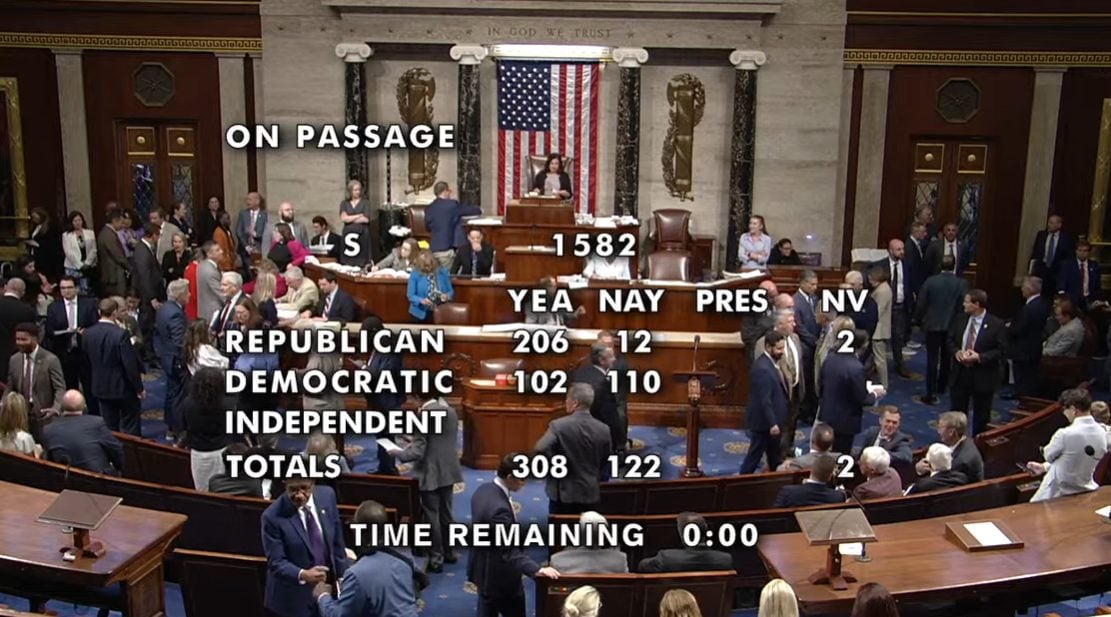
GENIUS stablecoin bill clears House and heads to Trump’s desk
Crypto advocates have long argued that regulatory certainty around stablecoins is essential to promote market stability, and integrate digital assets safely into the existing financial system.
The US House of Representatives on Thursday voted 308–122 to pass S. 1582, the GENIUS Act, a sweeping bill designed to establish a national regulatory framework for payment stablecoins.

The bill, which cleared the Senate last month, is now on its way to President Donald Trump’s desk and is expected to be signed into law as early as Friday.
The White House is already planning a signing ceremony for tomorrow, White House Press Secretary Karoline Leavitt said today.
“We know we have the votes, and we expect it to get to the President’s desk, and we are planning a signing ceremony tomorrow afternoon,” she said. “This piece of legislation is going to make America the crypto capital of the world, and that’s what the President promised.”
Lawmakers had initially anticipated reconciling the GENIUS Act with the House’s stablecoin proposal, the STABLE Act. But that plan was shelved under direct pressure from Trump.
“Get it to my desk, ASAP — NO DELAYS, NO ADD ONS,” Trump posted on Truth Social, pushing for a clean stablecoin bill without amendments or additional provisions.
The vote came just one day after the House advanced a package of three major crypto bills, including the GENIUS Act, the Clarity Act, and the Anti-CBDC Surveillance Act, after prolonged internal disputes over language in the anti-CBDC bill had stalled momentum.
Landmark victory
The House passage marks a historic first step by the US Congress toward establishing comprehensive federal oversight of stablecoins and the broader crypto sector.
The legislation, co-sponsored by Senate Banking Committee Chairman Tim Scott and spearheaded in the Senate by Sen. Bill Hagerty, aims to establish clear regulatory guardrails for the $264 billion stablecoin market, providing much-needed clarity for issuers, investors, and regulators.
Commenting on the House passage of the GENIUS Act, Scott called it a historic moment for US digital asset regulation. The move marks the first time Congress has approved bipartisan digital asset legislation in both chambers.
He added that this breakthrough opens the door for similar cooperation on the digital asset market structure bill, the CLARITY Act, which cleared the House just minutes ago.
“This bill is critical to delivering on President Trump’s agenda to cement the United States as the crypto capital of the world, and I look forward to taking a similar approach to get digital asset market structure legislation signed into law. Digital assets and blockchain technology are here to stay, and it’s past time our regulatory framework acknowledges this reality,” Scott stated.
The bill now heads to the Senate, where it faces a more uncertain path amid ongoing partisan debate and concerns over conflicts of interest involving President Trump’s growing ties to the crypto industry.
Editor’s note: Vote totals are preliminary and subject to change. Final counts will be confirmed once reported to the Clerk after the full vote series concludes.

 Earn with Nexo
Earn with Nexo